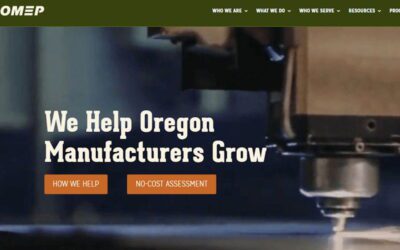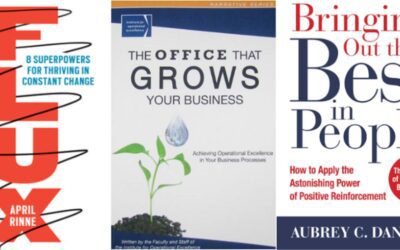Representative Title: Jean Back, Of Counsel, Schwabe, Williamson & Wyatt
What are some of the biggest challenges you see manufacturers facing in 2017?
2017 will bring interesting issues and potential changes for manufacturers. On the federal side, President Trump ran on an agenda of revitalizing manufacturing in America and renegotiating trade deals. Time will tell what these changes will mean for manufacturers in the US.
Oregon will get the very first Manufacturing Innovation Center in Scappoose, Oregon. This center will be a research and development center for manufacturing, and there will be a work-force development component that will be handled by PCC. OMEP will be covering this exciting development at the summit on March 13, 2017, in Salem.
For Oregon manufacturers, 2017 will also bring some important legislative changes that could impact wages and profitability. In December 2016, in response to a lawsuit filed in Multnomah County Circuit Court, the Oregon Bureau of Labor and Industries reversed a longtime interpretation of payment of daily and weekly overtime wages. In the past, BOLI interpreted the two statutes to require that manufacturers pay the higher of weekly overtime earned by employees in a manufacturing establishment for working more than 40 hours in a week, or daily overtime for working more than 10 hours in a day. In an unexpected and sudden reversal, BOLI is now stating that Oregon manufacturers must pay the combined amount of daily and weekly overtime. In addition, there are several other important employment bills that the legislature will be considering this year, including paid family medical leave and predictive scheduling. This is a good year for manufacturers to get involved and to reach out to your legislators regarding employment bills that will negatively impact your ability to grow, employ wage earners and to be profitable in this very regulated Oregon environment.
In May 2017, OSHA’s new anti-retaliation rules will come into effect. If you have questions about these rules, please refer to the webinar accessible at this link.The Federal rules have been in effect since January 1, 2017.
How can Schwabe help manufacturers meet those challenges?
Last year Schwabe, Williamson & Wyatt reorganized the firm from one that was focused on traditional legal practice areas, to one that is focused on industries. One of the industries that Schwabe represents and focuses on is the Manufacturing, Retail & Distribution industry. This refocus has allowed our lawyers to take a deep dive into the issues that our clients face on a day-to-day basis so that we can provide better, and more knowledgeable services. Our industry group has broad resources to help manufacturers solve their problems, including workforce and employment-related issues, succession planning issues, supply chain and other contracting issues, environmental issues, intellectual properties issues, just to name a few.
We have found that asking our clients what they want and how we can better serve them, and listening to their problems has made us better able to provide trusted legal advice. We have invited our clients into our office to teach us about their businesses. We have taken tours of our clients’ facilities so that we can understand exactly what they are talking about when we get a phone call for assistance. We have also discovered that our clients want us to provide legal services in a different way than we have in the past. As an example, one of our clients came in to our offices to talk to our industry group about supply chain contracting issues. We learned from this client that they had real difficulty managing these contracts. Hiring lawyers to assist in drafting and reviewing all of their agreements was too expensive and cumbersome. This discussion led a subgroup of our lawyers to sit down and create a supply chain contracting product that we could offer our clients. It is a new way of looking at providing legal services. We developed a set of different supply chain contracts normally used and built in a manager training workshop on how to use the forms, along with training on the main issues that will lead to litigation. Instead of hiring our attorneys to draft a single contract at an hourly rate, we will be the offering a product at a fixed rate– the set of contracts with built-in training, and a certain amount of time for our clients to call and ask questions.
This past year has literally been a metamorphosis for Schwabe. We are excited to continue to learn and grow with our manufacturing clients.
If you could give a manufacturer one piece of advice, what would it be?
I would advise manufactures not to be complacent in any area of their business, including technological advancements to manufacturing processes, workforce development and training, and smart business practices. Manufacturing is going to change dramatically in the next 10 years. Manufactures who understand and embrace technology and other innovations will be far more competitive than those who keep their heads in the sand. Engaging OMEP to come out and look at your facility to determine whether there are technologies, processes, or other improvements is one way of taking that step to stay in the forefront of the industry.
What is your favorite part about your job at Schwabe?
My favorite part of my job is working with my clients to help solve a problem. This is what I do and I really enjoy bringing my expertise into their world to make life easier for them.



